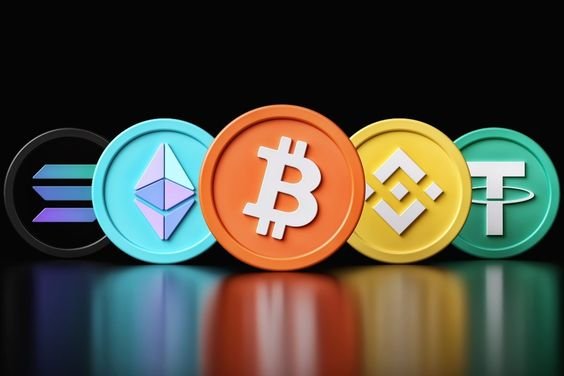As the cryptocurrency market continues to evolve, decentralized exchanges (DEXs) are becoming increasingly significant. Unlike centralized exchanges, which rely on a central authority to facilitate transactions, DEXs operate on blockchain technology, allowing for peer-to-peer trading without intermediaries. This article explores the role of decentralized exchanges in crypto trading, highlighting their benefits, challenges, and impact on the broader cryptocurrency ecosystem.
What are Decentralized Exchanges (DEXs)?
Decentralized exchanges are platforms that enable the trading of cryptocurrencies directly between users without the need for an intermediary. They operate through smart contracts, which are self-executing contracts with the terms of the agreement directly written into code. This structure allows for transactions to be processed automatically and transparently on the blockchain.
How DEXs Work
DEXs typically use liquidity pools, where users contribute their assets to create a reserve that others can trade against. In return, liquidity providers earn fees from the trades that occur within the pool. This model contrasts with order book-based trading found on centralized exchanges, where buyers and sellers place orders that are matched by the platform.
Popular decentralized exchanges include Uniswap, SushiSwap, and PancakeSwap, each of which operates on different blockchain networks like Ethereum, Binance Smart Chain, and others. These platforms have become essential for trading tokens that may not be listed on major centralized exchanges.
Benefits of Decentralized Exchanges
1. Enhanced Privacy and Security
One of the primary advantages of DEXs is the enhanced privacy and security they offer. Since users retain control of their private keys and do not need to provide personal information, the risk of data breaches and identity theft is significantly reduced. Furthermore, the decentralized nature of these platforms makes them less susceptible to hacks, as there is no central point of failure.
2. Greater Control Over Assets
In a DEX, users have full control over their assets at all times. Unlike centralized exchanges, where funds are stored in the exchange’s wallet, DEXs allow users to trade directly from their own wallets. This reduces the risk of losing assets in the event of an exchange hack or insolvency.
3. Accessibility and Inclusivity
Decentralized exchanges are open to anyone with an internet connection, regardless of their location. This accessibility is particularly important in regions where access to traditional financial services is limited. Moreover, DEXs typically do not have strict registration or KYC (Know Your Customer) requirements, making them more inclusive.
4. Wide Range of Tokens
DEXs often list a broader range of tokens than centralized exchanges, including new and emerging tokens that may not yet be available on major platforms. This gives traders early access to potentially lucrative investment opportunities.
Challenges Facing Decentralized Exchanges
1. Liquidity Issues
One of the main challenges facing DEXs is liquidity. Since these platforms rely on users to provide liquidity, there can be times when trading pairs have low liquidity, leading to higher price slippage and less favorable trading conditions. However, this issue is gradually being addressed as more users participate in liquidity pools and as new incentives for liquidity providers are introduced.
2. User Experience
While DEXs offer many advantages, their user interfaces can be more complex and less intuitive than those of centralized exchanges. This can be a barrier for beginners who may find it challenging to navigate the platform, understand gas fees, or manage their private keys.
3. Transaction Costs and Speed
DEXs, particularly those operating on the Ethereum blockchain, can suffer from high transaction fees (gas fees) during periods of network congestion. Additionally, the speed of transactions can be slower compared to centralized exchanges, especially on blockchains with limited throughput. However, advancements in blockchain technology, such as Ethereum’s transition to proof-of-stake and the development of layer 2 solutions, are expected to alleviate these issues over time.
4. Regulatory Uncertainty
The decentralized nature of DEXs presents challenges for regulators, who may struggle to enforce compliance with existing financial laws. This regulatory uncertainty can create risks for users, particularly in jurisdictions with strict cryptocurrency regulations. However, some DEXs are beginning to implement compliance features, such as optional KYC, to address these concerns.
The Impact of DEXs on the Crypto Ecosystem
1. Promoting Decentralization
By eliminating the need for a central authority, DEXs embody the core principles of decentralization that underpin blockchain technology. This shift towards decentralized finance (DeFi) is empowering users, giving them more control over their financial activities, and reducing reliance on traditional financial intermediaries.
2. Driving Innovation in DeFi
DEXs are at the forefront of the decentralized finance movement, driving innovation in areas such as automated market making (AMM), yield farming, and decentralized lending. These platforms are not only changing the way people trade cryptocurrencies but also how they earn passive income and interact with financial services.
3. Increasing Market Efficiency
The ability to trade a wide range of tokens on DEXs, including those not listed on centralized exchanges, contributes to market efficiency. DEXs provide a platform for price discovery and liquidity for smaller, niche tokens, helping to create a more dynamic and efficient cryptocurrency market.
4. Challenging Traditional Financial Systems
As DEXs and other DeFi platforms gain popularity, they are challenging the traditional financial system by offering alternatives that are more inclusive, transparent, and resistant to censorship. This disruption has the potential to reshape the financial landscape, providing greater access to financial services for people around the world.
Conclusion
Decentralized exchanges play a crucial role in the cryptocurrency ecosystem, offering enhanced privacy, security, and control over assets. While they face challenges such as liquidity issues, high transaction costs, and regulatory uncertainty, the ongoing innovation in the DeFi space is addressing these concerns. As blockchain technology continues to evolve, DEXs are likely to become even more integral to the future of finance, driving greater decentralization and inclusivity in the global financial system.
For traders and investors looking to participate in the decentralized finance revolution, understanding the role of DEXs is essential. By carefully considering the benefits and challenges, users can make informed decisions about how to engage with these platforms and take advantage of the opportunities they offer.
ALSO READ: Jeff Bezos Loses $15.2 Billion in a Day as Amazon Shares Plunge




